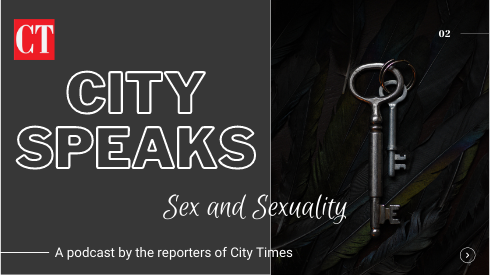“There’s a n—-r on a horse!” gasps a surprised townsman to his wife in Oscar winning director Quentin Tarantino’s newest cult attraction “Django Unchained.”
“Django Unchained” is an epic western that centers around Django (Jamie Foxx), a slave turned bounty hunter who journeys across the U.S. to rescue his beloved wife from a cynical plantation owner. The movie, directed and written by Tarantino, uses the n-word over 100 times.
With a word that has as much racially sensitive history as this one does, it’s no wonder that there are a lot of people who have a problem with this kind of dialogue. However, this is still a film, a form of artwork. And a popular one at that.
Making a big deal out of the word is what’s giving the n-word all of its power. Instead of seeing the word for what it is (a word), others can often mistake aesthetic for offense. Movies like Tarantino’s continue to ignite the issue for pop culture appeal, while at the same time truly authenticating where words like this actually had their place in history.
Tarantino filmed his recent work with the intention of giving the most accurate depiction of what it meant to be an African-American in the pre-Civil War era.
He stated, in an exclusive interview with BlackTree TV’s Jamaal Finley, that “In this one … (we have to) deal with the true brutality of slavery. I wanted to take a 21st century audience and stick them in the middle of Mississippi, in the Antebellum South and have them see, this is America, this was America then.” The excessive use of the n-word was imperative to the legitimacy and nature of the film.
Popular culture is often a reflection of what’s trending in the American consciousness, which has always been obsessed with racism, violence and scandals. It’s what sells. This has ultimately desensitized our culture and has allowed us to be more accepting of ideas that would have otherwise been unfathomable in the year 1858.
Professor and Director of Black Studies at the City College of New York, Arthur K. Spears, explains the expression’s acceptance throughout the Black community in “Perspectives: A View of the N-Word from Sociolinguistics.”
He explains that “In many African-American neighborhoods, ‘n—a’ is simply the most common term used to refer to any male, of any race or ethnicity. Increasingly, the term has been applied to any person, male or female. ‘Where y’all n—a’s goin?’ is said with no self-consciousness or animosity to a group of women, for the routine purpose of obtaining information. The point: N—a is evaluatively neutral in terms of its inherent meaning; it may express positive, neutral or negative attitudes.”
Tarantino has been known to conceive of and direct boundary-pushing movies in the last 20 years with films like “Reservoir Dogs,” “Pulp Fiction,” “Kill Bill” and “Grindhouse.” All of them are heavy with graphic nudity, graphic violence, explicit profanity and conduct; but it is the n-word that casts a shadow over all other themes.
Are we really offended by the n-word or is it just another riling conversation to have while standing in a busy checkout line? And if we are, then why not get upset by all of the other suggestive themes in R-rated movies, namely Tarantino’s?
The n-word being used in art is completely appropriate, because art is a form of expression. An artist, be it music, film, or literature has a right to create an expression of his or her liking.


